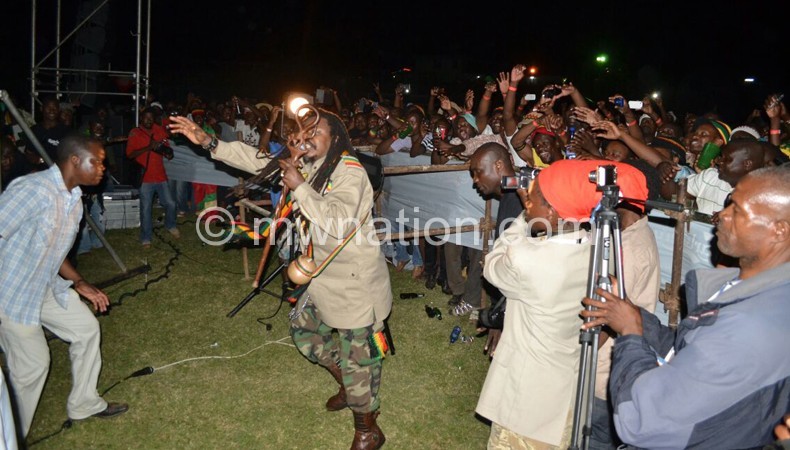MRA enhances tax enforcement on entertainment
Music promoters and event organisers in the country have described Malawi Revenue Authority’s (MRA) decision to enforce tax in the entertainment industry as milking an already thin cow.
MRA has embarked on a drive to enforce non-resident tax and value added tax (VAT), a development that will see foreign artists paying 15 percent tax on what they are paid for performances and organisers paying 16.5 percent VAT on earning from performances.

MRA’s deputy director of corporate affairs Steven Kapoloma confirmed the drive, saying it is because some players in the industry have been dodging the taxes.
He said: “This is not a new phenomenon. The Taxation Act and VAT Act are instruments that provide legal basis for domestic taxes in Malawi. Just like any other industries, the entertainment industry has been and is already in the country’s tax net.
“However, our past experience is mixed in the sense that there have been other players who are not tax-compliant. It is our duty to ensure that players pay a fair share of taxes so that there is an even playing field amongst all players.”
Kapoloma said the non-residential tax will be collected by organisers when they pay the musicians. They are the ones that will later pay the collected money to MRA.
Reacting to the MRA’s drive, one of the country’s music promoters and event organisers Lucius Banda of Impakt Media said the drive would kill the business.
He said: “We were briefed about this arrangement during the Busy Signal show. But we feel government is being harsh on Malawians with this issue of taxes.
“It appears it [government] wants to collect tax from anything. This is not healthy for local businesses that are just starting in the country because 15 percent is on the high side.”
Banda, whose outfit has twice brought Jamaican Busy Signal for performances in the country—during the Sand Music Festival last year and on September 3—said government should instead support such initiatives given the taxable business they generate.
He said: “For example, during the Busy Signal show alone, over 400 vehicles were fuelled, volumes of beer were consumed, a lot of food was eaten and a number of hotels were booked.
“All these services are taxed and they helped government to collect huge sums of money. So, instead of MRA coming to Lucius Banda to thank him for such an event, which helped them collect huge taxes, they want to knife him with an extra 15 percent for bringing an international act?”
Musicians Union of Malawi (MUM) president, the Reverend Chimwemwe Mhango, described the 15 percent tax as scary and a sheer attempt to discourage the entertainment business in the country.
He said: “We are not stopping government from imposing tax on the country’s entertainment industry. But they should be considerate with taxes. Malawians are already overwhelmed with taxes that are imposed on anything.
“So, since MRA is still consulting on the issue, we will challenge the 15 percent. Otherwise, no one would wish to start entertainment-related businesses in the country because they will be afraid of the exorbitant taxes.”
But Kapoloma said, as indicated by the authority’s past experience when collecting tax from the entertainment sector, the problem was that most players in the industry have considered it informal; hence, not taxable.
He said MRA just wants to collect maximum tax revenue in fair and transparent manner, stressing that entertainment companies and promoters are required by law to be paying their fair share of taxes “just like anybody else.”
Meanwhile, Kapoloma said MRA has embarked on sensitisation to ensure that all players in the entertainment industry are registered and fully educated on tax matters to enhance voluntary tax compliance among them.





